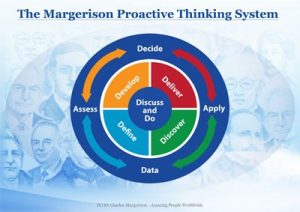Conversology – the study of the ways people discuss issues when exchanging information, and influencing others.
Introduction
To what extent can conversation be taught in schools? If students learn the art of conversation, will it improve their understanding of science, history, literature, mathematics and other areas? Will such conversational skills help students assist each other, as part of mutual learning? Beyond school, will conversational skills help students develop better relationships with their parents, siblings and the people they meet in their community?
 There is increasing interest in these questions, as more attention is focused upon student mental health and wellbeing. This is part of the wider attention that is being paid to Character Development that complements Curriculum Development in schools. It is increasingly recognised that passing examinations is no more an indicator of a rounded education, than is the ability to gain a high score in an intelligence test. It is, however, recognised that the ability to converse is a universal skill that is essential both in school and throughout life’s journey. This paper outlines ways and means that teachers can help develop student’s conversational skills in all academic subjects and in social situations.
There is increasing interest in these questions, as more attention is focused upon student mental health and wellbeing. This is part of the wider attention that is being paid to Character Development that complements Curriculum Development in schools. It is increasingly recognised that passing examinations is no more an indicator of a rounded education, than is the ability to gain a high score in an intelligence test. It is, however, recognised that the ability to converse is a universal skill that is essential both in school and throughout life’s journey. This paper outlines ways and means that teachers can help develop student’s conversational skills in all academic subjects and in social situations.
What Is Conversology?
Words that end in the suffix ‘ology’ refer to areas of study and learning. Examples of where a body of knowledge to support or reject theories have been developed include; archaeology, psychology, sociology, biology, geology, pathology, technology and many others.
Conversology is the word that I have developed to identify the study of discussions, in order to improve communication and understanding. So far, there is little formal attention within the curriculum to this important area. In contrast, Literacy and Numeracy have long been integral to the school curriculum. Given that so much learning is dependent upon verbal interaction, it is surprising that there is no formal subject of Conversology in schools, colleges and universities. There are strong reasons for having a special focus on Conversology, as a subject in its own right.
The foundations for such a subject are well established in history. The Greeks valued and taught Rhetoric, as the basis for free speech. They recognised Rhetoric as the ability to persuade through discourse. Aristotle provided guidelines when he referred to Logos, Pathos and Ethos as three major modes of persuasion. The ability to influence through conversation has always been the foundation of democratic debate, and also the basis for business and social interaction.
More recently, we have witnessed the emergence of terms like ‘critical thinking’ and ‘proactive thinking’ that are used in schools. Also, a field of study in psychology, called ‘discursive analysis,’ has emerged as a professional area of enquiry. This assesses the way people discuss issues and resolve differences. In addition, issues of meaning are covered by those who focus on Semiotics. Those who study Communication Analysis and Oracy have made contributions to the study of social interaction. Also, Sociolinguistics is a subject that compares and contrasts the language within different societies and cultures and is integral to the subject of Anthropology.
Conversology links with and builds upon these contributions, with a special focus on the applications to both personal and interactive learning. Therefore, in this article, I will outline specific ways in which Conversology can be applied in schools.
Margerison Proactive Thinking System
All subjects that can be studied have a structure. This applies to Conversology. One of the key frameworks I have developed is as shown here and referred to often as the Margerison Proactive Thinking System.

This model is very helpful for students, as it provides a thinking guide for their work on both education assignments and other issues in their life. It is sometimes referred to as the D-Model, as it relates to the following skills:-

Defining – This involves specifying what a problem or opportunity is, and indicating the questions and issues that need to be tackled.
Discovering – Finding relevant and useful information is vital to move forward in proactive problem solving, and explaining what the data means in terms of the action to be taken.


Developing – Identifying options and proposals for assessment is an essential activity to ensure improvements occur and a key part of proactive thinking.
Delivering – Ensuring that objectives are achieved on time according to a plan, is the essence of achievement, whether it be a project assignment or the development of a product.


Discussing – All major problems and opportunities require the ability to share and compare ideas and information, to ensure clarification and effective teamwork.
Doing – Although a lot may be said, the most important part is the coordination and implementation to ensure results are achieved.

These six key areas underlie proactive thinking and are essential for success. As they can be applied across the curriculum, they can be taught, and are relevant to history, science, music, geography and other subjects.
If students learn these skills in school, they can be applied throughout their lives. Our work at Amazing People Schools, focuses on these issues.
Applications
Feedback – We recognise that we can improve our performance when we gain feedback. However, the way the feedback is given often determines the extent to which the feedback is accepted. Sometimes feedback can be gained impersonally, such as via a video of a performance, but more often it is given during conversations. Students can learn how to give and receive both negative and positive feedback. They can also learn how to phrase questions in order to receive useful feedback.

Negotiation – Throughout life we all have to negotiate. Sometimes it may be informal, when discussing where to go for a meal with friends; or more business-based when agreeing a contract and price for a project. Negotiation clearly involves discussion skills. As Chester Karass, one leader in the field, observed “you don’t get what you deserve, you get what you negotiate.”
Appreciation – We all depend on other people to provide support, help and services. The extent to which people help us depends to a large extent on the way we converse and, in particular, the way we show appreciation. This is not only a courtesy, but also a skill that can be taught.
Interviews – To gain a job one usually has to attend an interview. One’s ability to respond to questions and present ideas and information, is assessed by the selectors. It is now recognised that one can improve conversation performance through Interview training.
 Teamwork – The ability to converse will influence the contributions one can make to teamwork. As projects become more complex, the more it becomes necessary to share and compare ideas and information with colleagues and clients.
Teamwork – The ability to converse will influence the contributions one can make to teamwork. As projects become more complex, the more it becomes necessary to share and compare ideas and information with colleagues and clients.
Problem Solving – Each day we have to solve problems, albeit modern technology can help provide information via smart phones and computers. However, the ability to converse by asking the right questions and gaining the appropriate information, is essential in all projects.
Educational Applications
 Within schools, conversation is a key to academic understanding. Therefore, an understanding of the specifics of language terms needs to be included in curriculum topics.
Within schools, conversation is a key to academic understanding. Therefore, an understanding of the specifics of language terms needs to be included in curriculum topics.
Science – Students will be taught the language of Science, inclusive of hypothesis development and testing within agreed research methods. Those scientific words, phrases and ideas are the basis for extending conversational skills.
Mathematics – Students will be taught the language of algebra and trigonometry and it is important that they can integrate this into a wider understanding through discussion.
Literature – By its very nature, the study of literature extends a student vocabulary, but does it improve their ability to converse? Conversology will assist them to do this by providing processes where students can learn how to converse effectively by discussing literary ideas.
Personal Health and Wellbeing – Given there is considerable stress associated with examinations, plus other individual anxieties that arise from time to time, it is important that students learn how to discuss and resolve such concerns. Understanding the principles of Conversology will assist students to maintain and improve their wellbeing.
Social and Cultural Studies – In most schools, there are students from different cultural backgrounds. Therefore, conversation to understand and respect cultural diversity is important. The principles and guidelines derived from Conversology research can help students improve their communications and interaction with people from different countries and cultures.
Drama and Music – These are traditionally areas for creative expression. Developing effective conversation skills can enhance the learning that students gain from these activities. In some of our work, we have focused on this area and developed short musical videos of virtual visits to various countries to understand the differences and similarities.
Summary
Conversation is an important part of education. Many have taken the skill of conversation for granted. However, when we learn a new language, we realise how difficult it is to communicate in conversation. We need to develop conversational skills in a range of ‘languages’ inclusive of science, mathematics, health, plus self- and character development.
Conversology is a subject that can and should be studied by both teachers and students. It can then be used both within the classroom and the wider community to facilitate personal learning and mutual understanding.
References
If Only I Had Said -C J Margerison – Mercury Publications.
‘Handbook of Language and Social Interaction’ D Edwards. 2005
‘Conversation and Cognition’ H Te Molder, J Potter 2005
‘Learning and Language in the Classroom’ Peter Chilver, Gerard Gould
‘Why Teach Oracy?’
‘Improving Oracy & Classroom Talk in English Schools: Achievements and Challenges’. Robin Alexander 2012. (DfE seminar on Oracy, the National Curriculum & Educational Standards).
‘Effective Negotiating’ – Seminars by Dr Chester Karrass.
‘Proactive Thinking Model’ – Dr Charles Margerison 2015
 Dr Charles Margerison, founder of Amazing People Worldwide and Amazing People Schools, is a Psychologist. As well as working in educational organisations for many years, he has consulted widely for major corporates in the fields of organizational and educational psychology. He was previously Professor of Management at Cranfield University, UK, and the University of Queensland, Australia. He founded Amazing People Worldwide in 2006 and is supported by a dedicated global team. Dr Margerison is a member of the Royal Institution, Royal Society of Literature, Historical Association, and Association of Business Psychology. He previously co-founded Emerald Publishing Ltd, and Team Management Systems, a team-building tool, which is now used in 190 countries worldwide.
Dr Charles Margerison, founder of Amazing People Worldwide and Amazing People Schools, is a Psychologist. As well as working in educational organisations for many years, he has consulted widely for major corporates in the fields of organizational and educational psychology. He was previously Professor of Management at Cranfield University, UK, and the University of Queensland, Australia. He founded Amazing People Worldwide in 2006 and is supported by a dedicated global team. Dr Margerison is a member of the Royal Institution, Royal Society of Literature, Historical Association, and Association of Business Psychology. He previously co-founded Emerald Publishing Ltd, and Team Management Systems, a team-building tool, which is now used in 190 countries worldwide.
